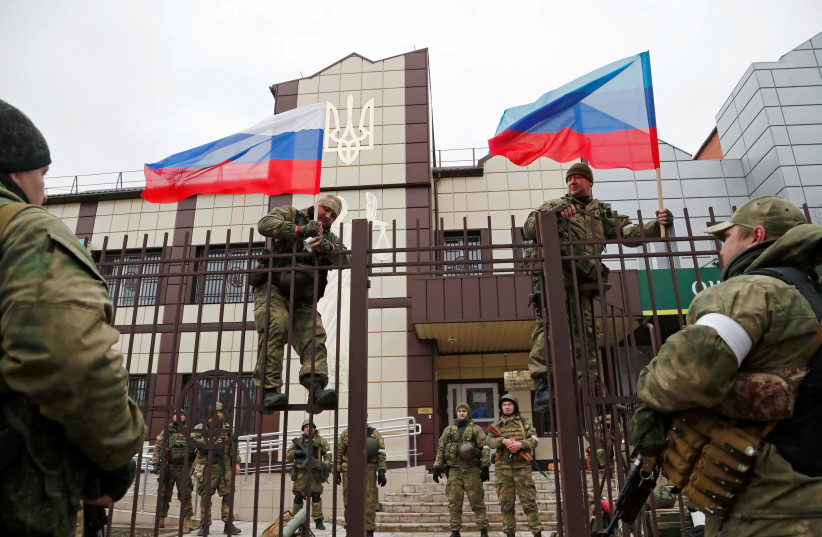Russia is now the hand behind the Iran nuclear deal.
Recent reports describe how the US and Western countries are always just a few days away from agreeing to some kind of return to the deal, in which Iran would get benefits and Israel remains concerned. However, at every turn, Moscow’s hand appears to emerge from behind the curtain in some way that leads to a potential deal being sabotaged, or some other element suddenly placed on the table.
Russia's negotiating strategy in being behind the Iran deal
Part of this is negotiating strategy. One type of deal-making involves getting your adversary to come to an agreement and then suddenly asking for some other “minor” amount. For instance, you are about to buy a car and all the paperwork is done, but suddenly the dealership wants another $500 for something.
Since the overall deal is worth much more than the new amount, and since the seller put so much work in, the gamble is that the seller won’t accept the time as a sunk cost and will agree to one last thing. In a recent biography of Russian President Vladimir Putin, Philip Short showed how Putin actually enabled this kind of dealmaking process in the 1990s when he was powerful in Saint Petersburg.

It has often been surmised that Iran’s current regime doesn’t care about a return to the deal, and that it believes Russia and China are the future for Iran. Yet Iran would like sanctions relief. What about the IRGC and other parties in Iran that also want sanctions relief?
Here, Russia is able to swoop in and play good cop to both sides. It appears Russia was a key partner in discussions for the new deal before Russia invaded Ukraine. After the invasion, Russia moved in to colonize the deal so that it could benefit from sanctions relief as well.
What is Iran's interest in Russia being behind the nuclear deal?
Iran’s interest in Russia being the rider on the deal, or helping to run the ball, can be seen in Iran’s media highlighting Russia’s role. Russia is indicating Iran will not accept the latest “loopholes” in the agreement.
Once again, the deal is in “danger” and it is unclear if it will happen. That is strange because just days ago it seemed the deal was about to go through. Once again, it appears Russia has been riding in at the last moment to advise Iran to squeeze more concessions and make more troubles. This is a classic negotiating tactic.
This is different from 2015 when the US was messaging through its own media about the need for the deal and the need to help Iran’s “moderates.” Today Iran isn’t using major Western media to push its narrative. Today Iran is working with Russia. However, Russia also has its own interests and it may be that the “Iran deal” is becoming the “Russia deal” with each passing day.
What does the West think about Russia and Iran?
For the West, the prospect of not only helping Iran but also Russia is not a good look. It means Russia can blackmail the West with energy cut-offs over the winter. Russia can also continue to invade Ukraine and cause inflation and chaos around the world.
It appears Russia is also using the crisis over the Zaporizhzhia nuclear plant as part of its blackmail with the West. The use of nuclear disaster as a way to create a crisis can also foreshadow what Iran will do in the coming years as it continues to enrich uranium, either with or without the deal. Russia’s role is therefore not one that is currently helping the deal. Instead, it is riding on top of it and potentially creating even more chaos and blackmail involving energy and nuclear issues.
